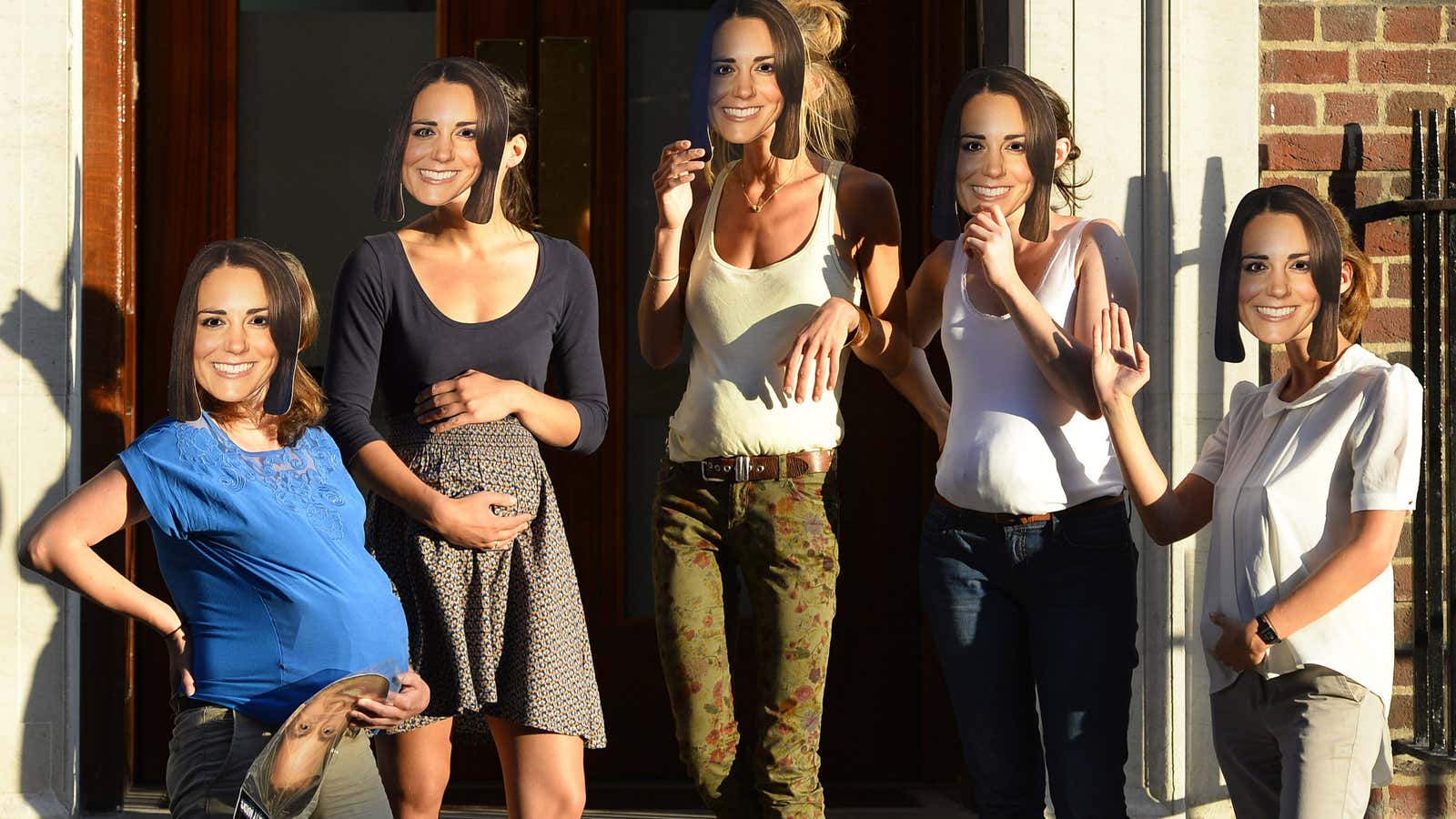It’s a boy! An economically stimulative boy!
The circus surrounding the coming spawn of the U.K’s Prince William and Kate Middleton isn’t just a global womb-watch. It’s also estimated to bring $380 million into the UK’s economy. And even though the country’s economic growth has ticked up a bit of late, Britain could still use the help.
Where’s this stimulus to come from, exactly? First, there are the parties. Joshua Bamfield, director of the Center for Retail Research, told Reuters that he estimates 4.8 million people will spend 62 million pounds on booze and 25 million pounds on food at parties to celebrate the royal infant. Bamfield also expects tourism to kick up in the months surrounding the birth, as it did by 13% in April. And some of that money will, as Bamfield told CNN, be spent on Keeping Up With the Windsors, as he expects more people to spend more on their own personal babies, as “they will want their baby in the local area to be up-market as well.”
But most of all? The commemorative schlock. So, so much schlock.
Bamfield estimates that 156 million pounds will be spent on royal baby souvenirs. That’s about $238 million. And who wouldn’t want to spend his or her hard-earned money on the troves of commemorative ephemera? Especially when you can get stuff like this at least mildly demonic baby doll.
Or these morning sickness bags from Lydia Leith.
And don’t forget, some of that seemingly ridiculous royal baby china may one day gain significant value as a collector’s item.
There is some skepticism here, however. Mothercare, a UK baby-goods retailer, has said it doesn’t expect to see much of a boost from the royal birth. The chief UK economist at IHS Global Insight said the birth would have a limited but “overwhelmingly positive” economic impact. But none of this really holds much of a comparison to another recent stimulative event in England: the 2012 Olympics. Last week, the UK government heralded a report showing that the London Games gave the economy a 9.9 billion pound trade and investment boost.
There’s one other stimulative aspect that isn’t purely economic. When Prince William was born in 1982, there was speculation from the Family Planning Association that the royal birth would help kick up Britain’s declining birth rate. That rate has shot up lately, to its highest level since 1972. But there is some speculation that the royal birth could bump it up just a little higher. And why is that? Maybe there’s nothing like watching a 24/7 broadcast of a patriotic pregnancy to get Britons in the mood.
This originally appeared at The National Journal. More from our sister site:
Al-Qaida said to design bomb to slip onto airliners
